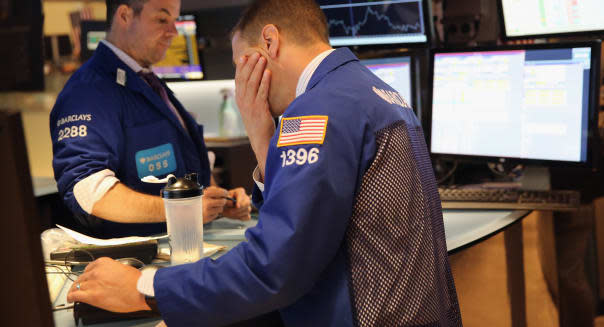Wall Street Heads for Worst Month Since May 2012

By Ryan Vlastelica
NEW YORK -- U.S. stocks fell in weak volume Friday, with the S&P 500 on track for its worst month since May 2012 as investors held off making large bets before a long weekend with the situation in Syria still uncertain.
Trading was volatile, with sharp swings between break-even and losses as U.S. Secretary of State John Kerry said in televised remarks that Syria's government used poison gas against civilians and made the case for a limited military response.
President Barack Obama said later he hasn't made a final decision on a response to Syria.
The CBOE Volatility index rose 3.6 percent. Trading was light ahead of Monday's market holiday for Labor Day, and the anemic volume likely amplified the market's swings.
Sponsored Links
"People are uneasy not knowing what's going on," said John Carey, portfolio manager at Pioneer Investment Management in Boston. "With that uncertainty and going into the Labor Day holiday, we're seeing people step back."
The benchmark S&P 500 stock index is down 1.8 percent for the week and 3 percent for the month, putting it on pace for its worst performance since May 2012.
"I tend to view the weakness as a buying opportunity, barring some global crisis," said Carey, who helps oversee about $200 billion in assets. "Syria isn't the crisis in and of itself, but if we do take military action, there could be repercussions." Military action "is always very risky."
The Dow Jones industrial average (^DJI) was down 52.42 points, or 0.35 percent, at 14,788.53. The Standard & Poor's 500 Index (^GPSC) was down 6.90 points, or 0.42 percent, at 1,631.27. The Nasdaq Composite Index (^IXIC) was down 30.76 points, or 0.85 percent, at 3,589.54.
So far this week the Nasdaq fell 1.9 percent while the Dow slid 1.5 percent in its fourth straight weekly loss. So far in August, the Dow fell 4.6 percent and the Nasdaq lost 1 percent. Only one of the 30 Dow components, Microsoft (MSFT), was higher for the month.
Video game companies were among the Nasdaq's biggest decliners. Electronic Arts (EA) fell 2.7 percent to $26.82 while Activision Blizzard (ATVI) fell 2.6 percent to $16.32.
Weak data on individual spending and tame inflation painted a picture of a soft economy, keeping investors guessing when the Federal Reserve might start to cut back on stimulus measures.
Consumer spending rose only 0.1 percent and inflation was tame in July, with a price index for consumer spending up 0.1 percent.
Other data showed the pace of business activity in the U.S. Midwest increased in August, as the Institute for Supply Management-Chicago business barometer rose to 53.0 from 52.3 in July, matching economists' expectations.
The Thomson Reuters/University of Michigan's final reading on the overall index on consumer sentiment slipped to 82.1 in August from 85.1 in July, but managed to top economist expectations for a final read of 80.5.

